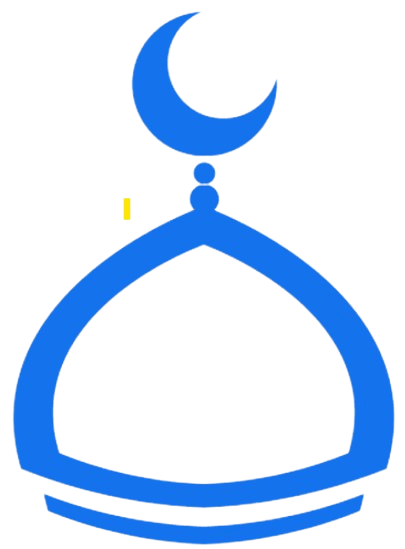How to Learn Ten Qirat Online?
Ten Qirats are not like different voices and different styles, rather there are slight differences in pronunciation, letters, and Harakat. It is like comparing two different books of the Quran and you find differences between them. How to learn ten qirat online. To know this clearly, we need to go back to the times of the Prophet (PBUH) and Islamic history. People in the times of Prophet Muhammad (PBUH) were illiterate, and they have their own dialect of their own tribe like any other language. Like in the case of English of British and American.
It has differences in spelling and pronunciation. The same was the case for that time when they have a different dialect of Quraish which was the tribe of Holy Prophet (PBUH), a dialect of Yaman, a dialect of Hair, and many more. These dialects have slight differences but without a change in the meaning.
How these ten Qirats evolved?
At the time of the revelation of the Quran, the angel Gebril (AS) came and recited the Quran to him and the Prophet of Allah recited it back to him in one dialect. Then Prophet requested the angel to increase the dialect and he did until seven completed. All these were the same in meaning but a change in pronunciation.
Here are the 3 Hadith on this:
Learn Ten Qirat
1) Ibn ‘Abbaas reported that the Prophet (PBUH) said, “Jibreel recited the Qur’aan to me in one harf, and I recited it back to him, but I requested him to increase (the number of harf) and he continued to increase it for me until we stopped at seven ahruf.” Ibn Shihaab az-Zuhree (d. 124 A.H.), one of the narrators of the hadeeth, said, “It has reached me that these seven ahruf are essentially one (in meaning), they do not differ about what is permitted or forbidden.” 383
2) ‘Ubay ibn Ka’ab reported that the Prophet (PBUH) was once on the outskirts of Madeenah (near the tribe of Banoo Ghifaar) when Jibreel came to him and said, “Allaah has commanded that you recite the Qur’an to your people in one harf.” The Prophet (PBUH) replied, “I ask Allaah’s pardon and forgiveness! My people are not capable of doing this!” Jibreel then came again and said, “Allaah has commanded you to recite the Qur’an to your people in two ahruf.”
The Prophet (PBUH) again replied, “I ask Allaah’s pardon and forgiveness! My people are not capable of doing this!” Jibreel then came a third time and said, “Allaah has commanded you to recite the Qur’aan to your people in three ahruf.” The Prophet (PBUH) replied for a third time, “I ask Allaah’s pardon and forgiveness! My people are not capable of doing this!” At last, Jibreel came for the fourth time, and said, “Allaah has commanded you to recite the Qur’an to your people in seven ahruf, and in whichever harf they recite, they would be right. 384”
3) ‘Umar ibn al-Khattab narrated, “I was sitting in the masjid when I heard Hishaam ibn Hakeem recite Soorah al-Furqaan. I was almost about the jump on him in his prayer, but I waited until he finished, and then grabbed him by his garment and asked him, ‘Who taught you to recite in such a manner?’” He replied, ‘It was the Prophet (PBUH) himself!’ I responded, ‘You are mistaken, for indeed I learned this soorah from the Prophet (PBUH) and it was different from your recitation!’
Therefore, I dragged him to the Prophet (PBUH) and complained to him that Hishaam had recited Soorah al-Furqaan in a manner different from what he (PBUH) had taught me. At this, the Prophet (PBUH) told me to let go of Hishaam, and asked him to recite Soorah al-Furqaan. Hishaam recited the Soorah in the same way I had heard him before. When he finished, the Prophet (PBUH) said, ‘It was revealed this way.’ He then asked me to recite the same soorah. When I had finished, he (PBUH) said, ‘It was (also) revealed this way. Indeed, the Qur’aan has been revealed in seven different ahruf, so recite whichever one is easy for you.’” 385.
In conclusion, the Holy Quran was recited in seven different dialect that was allowed by Allah based upon 7 different dialect at that time in the Arabian Peninsula. After the death of the Prophet, the Companions understood it and spread it to others as well. But the once Islam spread and people of different Areas met, they found these differences. For this once Companmion suggested the Khalifah Usman Bin Affan (RA) combine the Ummah on one Mushaf (Book). The Khalifah chose the Qureshi dialect for the Ummah. Other Mushaf was forgotten. But the seven recitations remain in the society from the Qureshi Mushaf in reading only not in the shape of books.
Within the Learn Ten QiratQira’at, there are two categories:
1) Mutawatir: The transmission which has independent chains of authorities so wide as to rule out the possibility of any error and on which there is the consensus of Ulema of that time.
2) Mashhur: these are slightly less wide in their transmission, but still so wide as to make errors highly unlikely to happen.
There are 7 Mutawatir Qira’at:
1) Nafi’ (d. 169/785)
2) Ibn Kathir (d. 120/737)
3) Abu ‘Amr ibn al-‘Ala’ (d. 154/762)
4) Ibn ‘Amir (d. 154/762)
5) ‘Asim (d. 127/744)
6) Hamza (d. 156/772)
7) al-Kisa’i (d. 189/904)
There are 3 Mashhur:
1) Abu Ja’far (d. 130/747)
2) Ya’qub (d. 205/820)
3) Khalaf (d. 229/843)
Let’s learn ten Qirat online with Tanzil-Ul-Quran’s teacher with the best methodology.



